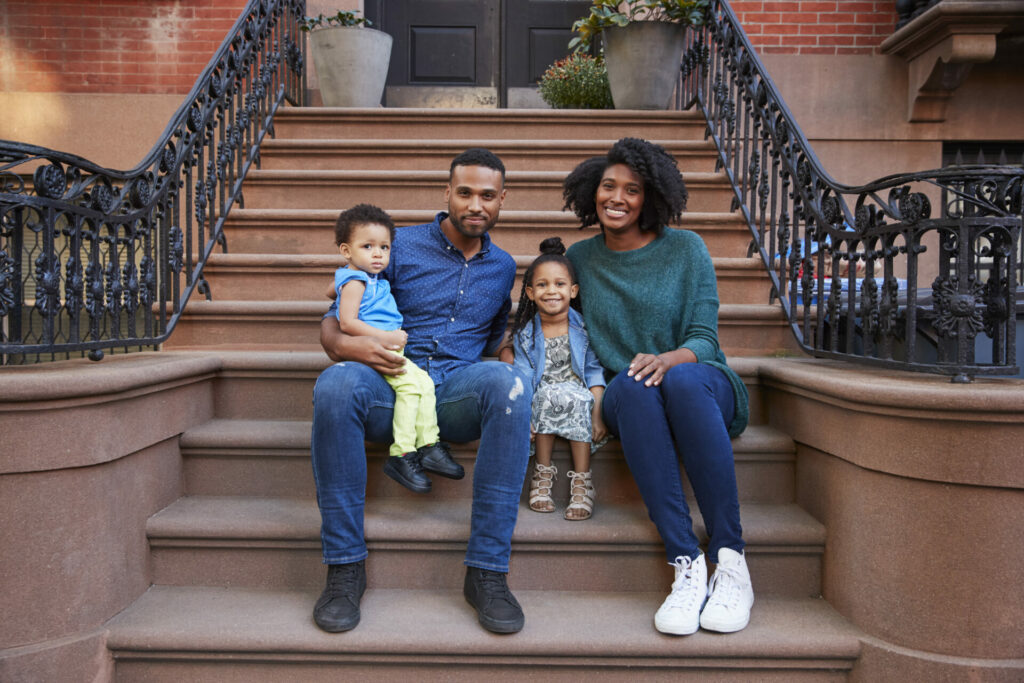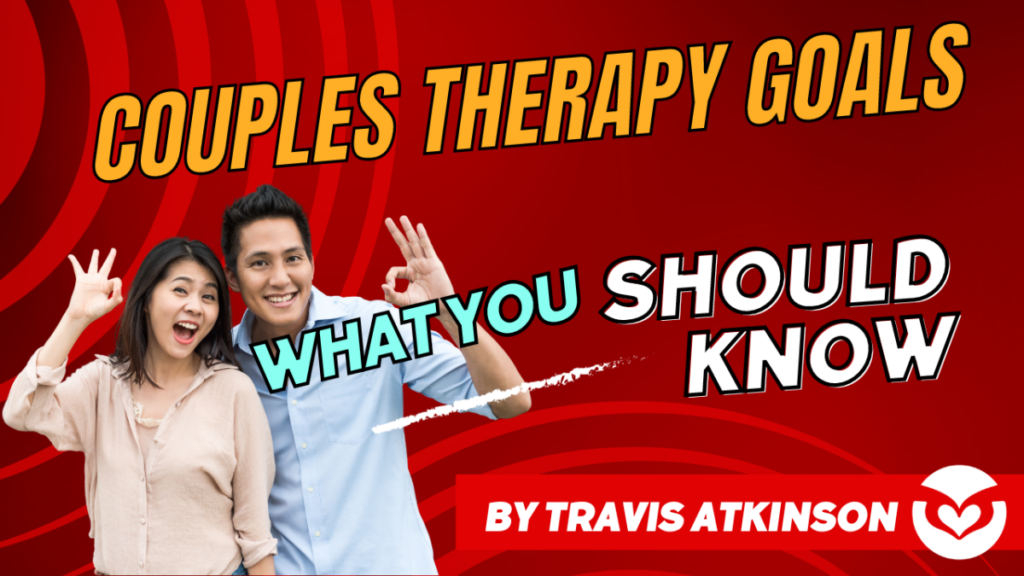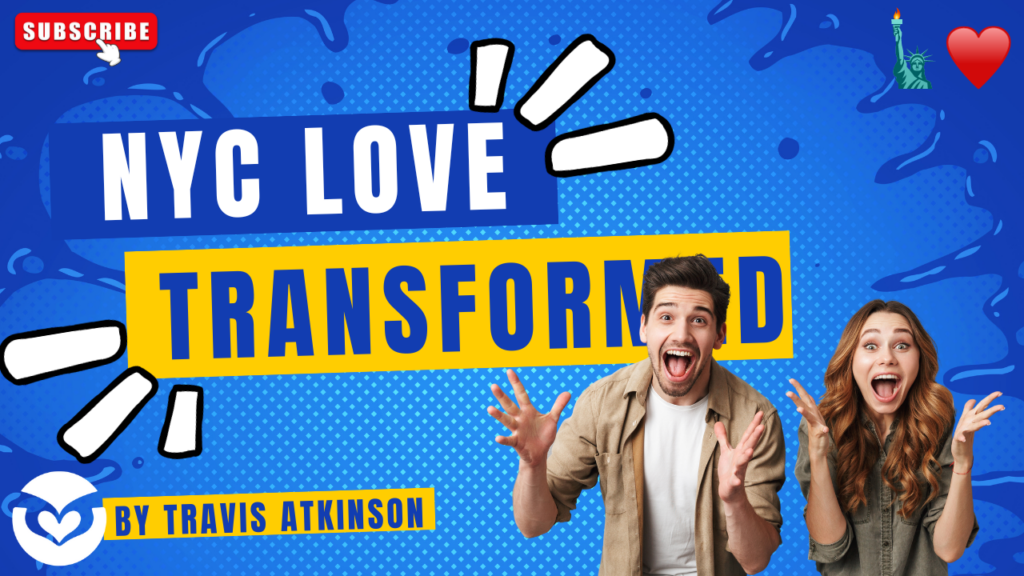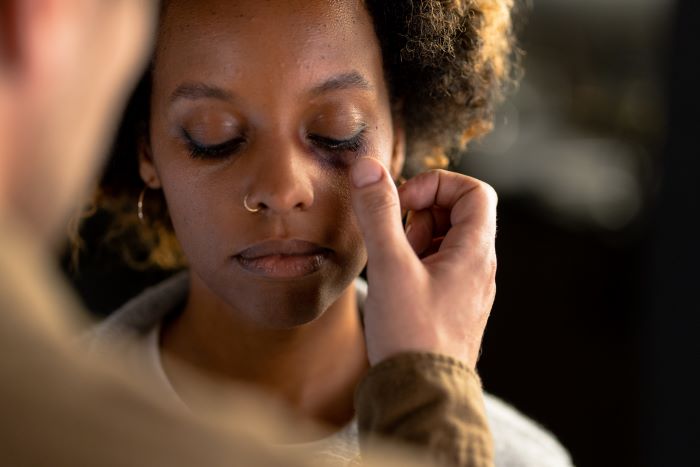Unlocking the Power of Integrated Couples Therapy for New Yorkers
Are you and your partner seeking to reignite the spark in your marriage or relationship and build a stronger, more fulfilling connection? I’ll take you on a journey to find a well-qualified couples therapist in New York with the transformative power to breathe new life into your love life.
Picture your relationship as a magnificent tapestry intricately woven with threads of love, trust, and shared experiences. But over time, you may have noticed a few frayed edges and loose threads, causing your once harmonious tapestry to lose its luster. Communication struggles, intimacy challenges, and recurring conflicts may have left you disconnected and unsure of how to mend the gaps.
If you feel stuck and your relationship is in trouble, you have probably thought about many ways to repair it.
- Going away on a nice vacation for yourself or reading a self-help book to bring back the spark?
- Taking a break so you can come back to each other fresh?
- Taking a class together to try and reconnect?
You may have tried these or other ideas only to find that you are still unhappy in your marriage or love relationship.
This is usually the point when couples come to therapy. It’s the stop after months or years of arguing and unhappiness and before breaking up or divorce court. Unfortunately, rare is the couple who comes in for a tune-up or to prevent their relationship from becoming unhappy. Most couples are on the brink, ready to fight and, in some cases, to walk away. This is a very high-stakes situation. Whatever the outcome, couples get to a point where they are no longer willing to tolerate their current dynamic. They want change.
Who do you trust to help you navigate such an important, deeply personal, and complicated process? You wouldn’t choose anywhere to live, take just any job, or partner with the first person you date. You know that the choices you make about these things will have a profound impact on your life. It would help to read a guide or have a program that helped you choose wisely.
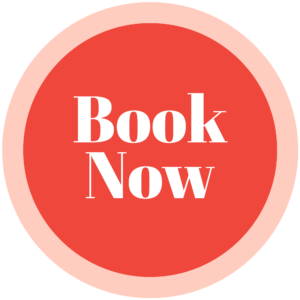
Finding a couples therapist in New York who can truly understand your relationship’s troubles and offer perspective and tools that can help facilitate transformation is no different. We have all had great and terrible teachers in school. When we have a good teacher, we learn. Many have had misery-making bosses, and hopefully, a few good ones. When we have a great boss, we perform at our best. We all know amazing coworkers and those that drive us crazy. When we have great coworkers, we enjoy our days more. Different people play different roles in our daily lives and can have a profoundly positive or negative impact on us.
In this guide, I’ll navigate the essential steps to finding an ideal couples therapist in New York who will understand your unique needs and guide you toward a stronger, more fulfilling relationship. I’ll explore the remarkable benefits of an integrated approach, blending the expertise of:
- Emotionally Focused Therapy
- Gottman Method Couples Therapy
- Cognitive Behavioral Therapy
- Schema Therapy
Choosing the right marriage therapist opens the lines of communication between you and your partner in a new way, transforming your relationship away from what is not working and towards what will.

The Quest for Well-Qualified Couples Therapists in New York
Step 1: The Importance of Expertise in a Therapy Session
Imagine you have a rare, exotic plant that requires specific care to thrive. Would you entrust its well-being to a general gardener or seek out an expert botanist specializing in nurturing such delicate flora? The answer seems clear – you’d want someone with the knowledge, skills, and experience to ensure the plant’s growth and flourishing.
Like that exotic plant, your relationship is a unique entity with its own needs, challenges, and potential for growth. Navigating the complex web of relationship dynamics requires specialized expertise in couples counseling. It’s like seeking a captain who knows the treacherous waters, currents, and hidden reefs of the sea you’re sailing on.
A general therapist may be skilled in individual therapy, helping clients navigate personal challenges. However, couples therapy requires a relationship expert with specific knowledge and skills specializing in couples. Here’s why:
1. Deeper Understanding of Relationship Dynamics to Communicate Effectively
Couples counseling is like a dance, where partners move together in a delicate rhythm. The foundation for relationship therapy success is a skilled couples therapist or relationship expert who understands the intricate interplay between emotions, communication patterns, shared experiences, and the New York State of Mind. They can decipher the underlying dynamics contributing to conflicts, disconnection, and relational distress. It’s like having a seasoned choreographer who can help you and your partner create a new dance routine that flows harmoniously.
For example, a general therapist might focus on individual perspectives and personal growth. In contrast, a couples therapist understands the importance of the whole person and relationship functioning as separate entities. They can identify recurring patterns of interaction and underlying attachment needs and help you develop healthier ways of relating.
2. Specialized Tools and Techniques
Just as a carpenter has an array of specialized tools to create precise cuts and joinery, a couples therapist has a toolbox filled with specific techniques to address relationship issues. They are equipped with evidence-based approaches that have been proven effective in couples counseling.
For couples therapy success, a general therapist would likely need to gain more than a weekend course’s knowledge or experience in techniques like Emotionally Focused Therapy (EFT), Gottman Method Couples Therapy, Cognitive Behavior Therapy (CBT) or Schema Therapy for Couples (ST-C), specifically designed to address relationship distress and promote healthy communication and emotional connection. These specialized tools are like the precision instruments that allow the therapist to navigate the intricacies of your relationship and facilitate meaningful change.
3. Experience in Couples Counseling
Expertise as a marriage expert is not solely derived from theoretical knowledge but also from practical experience. Couples therapists in New York with specialized experience have honed their skills through countless hours working with diverse couples in the city’s five boroughs, facing various challenges. They’ve witnessed the ebbs and flows of marriages and love relationships in New York, the patterns that hinder growth, and the strategies that foster connection.
Drawing on their experience, a well-qualified couples therapist in New York can provide valuable insights and guidance tailored to your unique situation. It’s like having a seasoned guide who has explored different terrains and can show you the most efficient path to your desired destination.

Step 2: Research and Referrals
Now that we understand the importance of expertise in couples counseling in New York let’s dive into Step 2 of our quest: research and referrals. Like seasoned explorers consult maps and seek advice from those who have ventured before them, gathering recommendations and conducting thorough online research are vital to finding potential marriage therapists in New York with the specialized expertise needed for your couples therapy journey.
1. Recommendations and Referrals
When finding a couples therapist in New York, seeking professional recommendations and referrals from trusted sources can be invaluable. Think of it as receiving insider knowledge from those who have experienced successful couples therapy. Reach out to trusted friends, family members, or even your primary care physician to see if they can recommend a couples therapist in New York who has helped navigate relationship challenges.
Personal recommendations can provide a valuable starting point in your search. Just as you may trust your friend’s restaurant recommendation or seek their advice on the best vacation spots, their endorsement of a couples therapist in New York carries weight. It’s like having a reliable compass that points you in the right direction.
2. Unveiling the Online Realm
The digital landscape offers a vast ocean of information at your fingertips. Once you’ve gathered some recommendations or started from scratch, it’s time to embark on your online research journey. Think of it as exploring uncharted territories in search of the perfect match.
Begin by searching therapist directories and websites. Look for therapists who specialize in couples counseling and have experience addressing your issues. For instance, if one partner has ADHD, finding a marriage therapist in New York with expertise in ADHD-related marriage challenges can make a significant difference.
Where and how did they get their expertise? For instance, you will want to know that the therapist completed a thorough program in ADHD and relationships and has extensive practice with couples who have an ADHD partner in their marriage rather than simply reading a book on ADHD or attending a weekend ADHD training course. It’s like seeking a travel guide who knows the hidden gems of a city you’re eager to explore.
As you peruse therapist profiles, pay attention to their qualifications, areas of expertise, and therapeutic approaches. Consider the impact these details can have on your journey. However, it’s important to remember that profiles offer a mere glimpse into a marriage therapist’s background and approach. They’re like the previews of a movie, providing a taste but only part of the experience.
3. Navigating Reviews and Testimonials
Just as you would read reviews before purchasing a product or booking a hotel, exploring reviews and testimonials of therapists can provide valuable insights. Be mindful that reviews should not be the sole determining factor but a puzzle piece.
When it comes to online reviews for psychotherapists, caution is paramount. While reviews can be valuable in many aspects of our lives, like finding a hot coffee spot in the neighborhood, tread reviews cautiously when evaluating psychotherapists.
Let’s take a moment to reflect on the potential ethical concerns that arise in this context. Imagine Alex and Taylor, who sought couples therapy to navigate their marriage challenges. They were delighted with their therapist’s expertise, compassion, and guidance, which instilled hope in their hearts.
However, they were taken aback when their marriage therapist solicited them to write a Google review. Had they written a review with identifying information, this potential breach of confidentiality may have jeopardized their trust and compromised the objectivity of their treatment. It serves as a reminder of the importance of upholding the ethical standards of psychotherapy and the need for caution when relying on online reviews.
To enhance your self-help research and navigate the complexities of psychotherapy reviews, keep the following points in mind:
– Confidentiality and trust are vital: Psychotherapy relies on a safe and confidential space where clients can freely explore their thoughts and emotions. Reviews that compromise confidentiality might raise concerns about the therapist’s commitment to ethical practices if the therapist solicited them.
– Objectivity in treatment: Reviews can influence perceptions of a therapist’s effectiveness. When a therapist solicits reviews, it can create bias and compromise the objectivity necessary for effective treatment.
– Evaluate the source: Assess the credibility of online reviews, considering whether they come from reliable and trusted sources that protect from revealing any identifying information.
– Seek professional help to support and gather information and guidance: When in doubt, consult a trusted professional who can provide insights, practical tips, and recommendations based on their knowledge and experience.

Finding a well-qualified couples therapist in New York goes beyond online reviews. Trust your instincts, seek referrals from trusted sources, and prioritize therapists who prioritize your confidentiality and well-being above all else.
Ultimately, it is crucial to prioritize the therapeutic relationship and ensure that the therapist’s primary focus is on your well-being. While some review sites may provide valuable insights, consider the potential impact on the therapeutic process. Seek therapists who prioritize confidentiality, maintain impartiality, and adhere to professional, ethical guidelines, ensuring the therapeutic journey remains safe and effective.
Take reviews, or lack of reviews, with a grain of salt. Each relationship is unique, and what works for one couple may not work for another. Trust your instincts and consider a mix of personal recommendations, online research, and your assessment during the selection process.

Step 3: The Initial Consultation
Now that you’ve gathered recommendations and conducted thorough online research, it’s time to take the next step in your quest for a well-qualified couples therapist in New York: setting up the initial consultation. This meeting is pivotal to assessing the couples therapist’s style, asking questions, and determining if they fit you and your partner.
1. The Significance of the Initial Consultation
Think of the initial consultation therapy session as a first date, where you and the marriage therapist get to know each other and assess compatibility. It’s a crucial moment to establish a sense of connection, trust, and mutual understanding. Some therapists, especially those starting in the field, offer free consultations, though more experienced therapists usually count it as a first session of the initial assessment process in couple therapy. Like dating, chemistry and compatibility are crucial in establishing a therapeutic alliance.
Pay attention to the therapist’s style and approach during this first session.
- Are they warm, empathetic, and attentive?
- Do they create a safe and welcoming environment where you feel comfortable opening up?
In couple therapy, you’ll share vulnerable aspects of your relationship, so feeling at ease is essential. A couple therapist’s ability to accurately and comprehensively conduct the initial assessment while they provide support is vital to create a specialized treatment plan that can vary depending on your marriage’s unique needs. It’s like stepping into a cozy living room where you can freely express your thoughts and emotions. Ideally, you and your partner feel you are on the same page as you commit to marriage therapy which can also improve self esteem.
2. Feeling Comfortable and Understood
Feeling comfortable and understood during the first session in couple therapy is paramount. You want to find a therapist with whom you can build trust and establish an open line of communication. They should be someone you feel comfortable sharing your true self with. Finding a trusted confidant who can hold a safe space for your relationship’s deepest secrets and challenges is like finding a trusted confidant.
In addition to feeling comfortable, assessing if the therapist truly understands where you and your partner are coming from is crucial.
- Do they actively listen and show genuine empathy
- Are they open to learning about each person’s perspective?
A therapist who can truly grasp your unique experiences and challenges will be better equipped to guide you toward meaningful change. It’s like finding a skilled translator to bridge the gap between your words and your partner’s understanding.
A skilled couples therapist goes beyond listening. They ask insightful questions and provide feedback that helps you and your partner better understand each other and help your self esteem. They help you unravel the underlying layers of conflict and identify the emotions driving your actions. They factor in your marriage’s unique challenges for both you and your mate, like physical illness. It’s like having a wise guide who can lead you through the maze of your relationship together, shining a light on the hidden corners.
Lastly, research shows the therapist should be responsive to your concerns. Both you and your partner should feel free to seek clarification from the couple therapist if something feels unclear or if you believe they need additional resources to understand a particular aspect fully. A skilled therapist welcomes open dialogue and is open to being corrected. The therapeutic journey is a collaborative process, and your feedback is invaluable. It’s like co-piloting a plane with a responsive, attentive pilot who values your input in your own relationship.
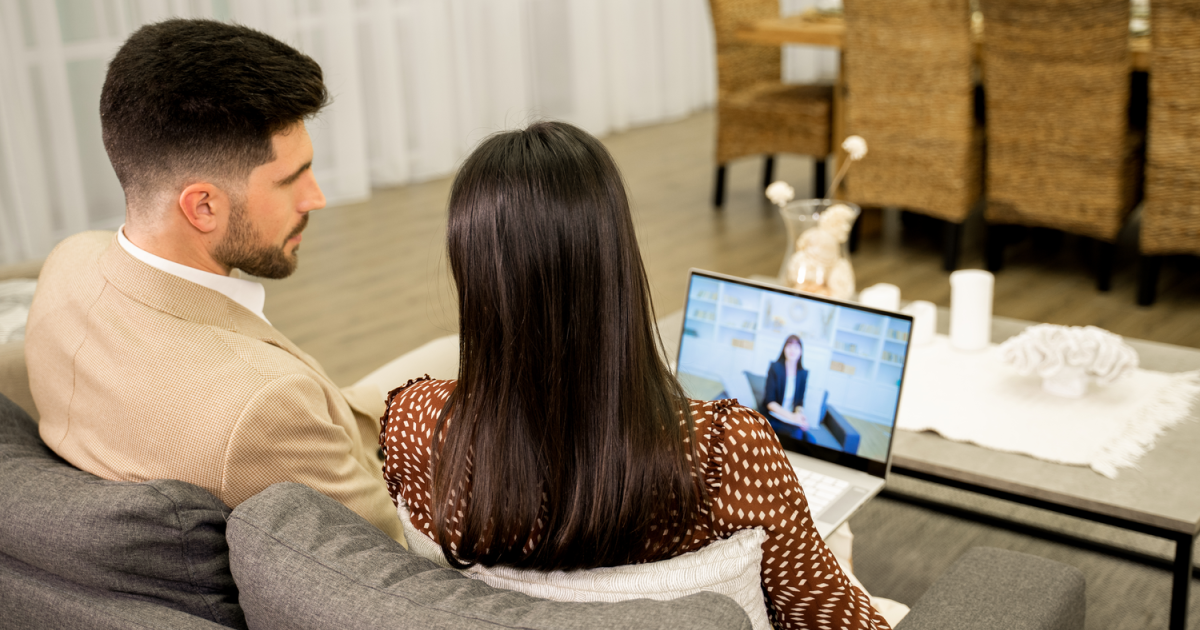
II. What are the ingredients of an Integrated Approach?
A. Emotionally Focused Therapy (EFT)
When it comes to couples therapy, one powerful approach that has gained significant recognition is Emotionally Focused Therapy (EFT). This therapeutic approach is rooted in the deep understanding that emotional bonding and attachment in a program helped sustain a healthy marriage and fulfilling relationship.

1. Understanding the Core Principles of EFT
Imagine that emotions are the currents that flow beneath the surface of your relationship, shaping your interactions and influencing your connection. Emotionally Focused Therapy focuses on tapping into these underlying emotions to help couples strengthen their bond.
The core principles of EFT revolve around creating a safe and supportive environment for secure attachment between partners. It helps couples find a safe space to explore and express their deepest emotions, fostering a sense of emotional vulnerability and intimacy. It’s like building a sturdy foundation for a house, with first marriages and beyond, ensuring your relationship has a solid base to withstand life’s challenges.
2. Reshaping Negative Interaction Patterns
Many couples encounter negative interaction patterns that hinder their communication and relationship functioning. These patterns can lead to misunderstandings, arguments, and a sense of disconnection. Emotionally Focused Therapy aims to help couples understand and reshape these negative patterns to improve relationships.
Through EFT, couples learn to communicate effectively, identifying the underlying emotions driving interactions in their marriage. They gain insight into their and their partner’s needs, fears, and desires. By exploring these emotions together, they can break free from destructive cycles and foster healthier ways of relating. It’s like unraveling the knots in a tangled ball of yarn, allowing the threads of deeper understanding, improving communication, and increasing compassion to weave a stronger bond.

B. Gottman Method Couples Therapy
Another highly effective approach in couples therapy for New Yorkers that has garnered attention from research, television shows, and psychological acclaim is the Gottman Method of Couples Therapy—developed by psychologists Drs. John and Julie Gottman. This research-based approach provides couples practical tools and strategies to strengthen their marriage or love relationship and build healthy skills.
1. Introducing the Gottman Method
Imagine having a roadmap that guides you through the twists and turns of your marriage or love relationship journey. The Gottman Method Couples Therapy offers just that. Based on decades of extensive research and observation of thousands of couples, the Gottmans have identified key factors that contribute to marriage and love relationship success.
The Gottman Method focuses on helping couples build a strong foundation by enhancing friendship, improving their communication skills, and fostering shared meaning. It’s like equipping yourselves with a toolbox of techniques to strengthen your bond with your partner in your marriage.
2. Enhancing Communication and Relationship Skills
Communication is often described as the lifeblood of a marriage and love relationship. The Gottman Method recognizes this and provides couples with practical tips and strategies to enhance their communication skills. It helps couples learn practical active listening skills and techniques, express their needs and desires, and constructively navigate conflict.
Couples gain insight into their communication patterns through the Gottman Method and learn to break free from negative cycles. They discover ways to express their emotions and needs that foster more profound understanding and connection. It’s like learning a new language together, allowing you to express yourselves authentically and be honestly heard by your partner in your marriage.
Additionally, the Gottman Method emphasizes building friendship and intimacy in a marriage. It helps couples nurture their emotional connection, create shared rituals, and foster a sense of admiration and fondness for one another. By strengthening the foundation of friendship, couples can weather the storms of life with resilience and support.
The beauty of the Gottman Method lies in its practicality and evidence-based approach. The techniques and strategies provided are not mere theories but have been tested and refined through extensive research. Couples who engage in this method can experience significant improvements in their relationship satisfaction and overall well-being.
In an integrated couples therapy approach, utilizing the Gottman Method, alongside other therapeutic modalities, creates a comprehensive framework that addresses various aspects of a marriage or love relationship. It’s like combining different ingredients to create a rich, flavorful dish that satisfies and nourishes both marriage partners while gaining a deeper understanding of each other.

C. Cognitive Behavioral Therapy (CBT)
Within the integrated approach of couples therapy, Cognitive Behavioral Therapy (CBT) is a powerful tool that focuses on identifying and changing negative thought patterns and behaviors. By understanding the role of cognition and behavior in shaping our experiences, we improve a marriage or love relationship. CBT empowers couples to develop healthier behaviors and effective coping mechanisms.
1. Practical Techniques for Identifying and Changing Negative Thought Patterns
Imagine our thoughts are like the lenses through which we perceive the world. Cognitive Behavioral Therapy helps couples recognize and challenge negative thought patterns, replacing them with more balanced and realistic perspectives. It’s like polishing the lenses of your glasses, clearing the fog of negativity in a marriage and allowing you to see things in a new light.
In CBT, couples work collaboratively with the therapist to identify harmful thought patterns, such as distorted thinking, negative self-talk, or irrational beliefs. They learn techniques to examine the evidence supporting these thoughts and explore alternative interpretations. By replacing negative thoughts with more accurate and positive ones, couples can shift their mindset, reduce stress, and foster a healthier perspective on themselves and their marriage or love relationship.

2. Developing Healthier Behaviors and Coping Mechanisms:
Our behaviors play a crucial role in our relationships. Cognitive Behavioral Therapy helps couples identify maladaptive behaviors and relationship difficulties and develop healthier alternatives. It provides practical strategies to modify behaviors contributing to relationship distress, and distressed couples cultivate new habits supporting positive interactions.
Couples learn practical communication skills, problem-solving techniques, and conflict-resolution strategies through CBT. They explore patterns of behavior that may be reinforcing negativity or distancing and work towards implementing new behaviors that promote connection and understanding with one partner. It’s like rewiring the neural pathways in your brain, forging new paths of behavior that lead to a more harmonious relationship.
CBT also equips couples with effective coping mechanisms to manage stress, anxiety, and other emotional challenges impacting their relationship. Couples learn practical tools to regulate their emotions, practice self-care, and have new skills to navigate difficult situations with resilience. It’s like having a toolkit of coping skills that enable you and your partner to weather the storms of life together.
By integrating Cognitive Behavioral Therapy into couples therapy, couples can better understand the interplay between thoughts, behaviors, and emotions. They gain practical techniques to create lasting change, improve relationships, and foster a more positive and fulfilling relationship.

C. Schema Therapy for Couples: Identifying Deep-Rooted Patterns
Based on cognitive therapy, schema therapy for couples (ST-C) has become a powerful way for couples to deal with challenging problems that may not respond to standard therapies. It gives a unique view that deepens into the fundamental patterns called schemas and modes, helping partners heal profoundly.
1. Understand Schemas and Modes
Schemas are deeply rooted core ideas that we form early in life. They shape how we see things and how we act in relationships. They often come from past experiences of being ignored, left alone, or not being trusted, leading to negative core views about oneself or others. Think of schemas as the glasses through which we see the world. They shape how we understand how relationships work. For example, a partner may have a schema of “abandonment” from their youth, leading to fears of being left or rejected.
On the other hand, modes are different emotional states and coping strategies that emerge when our schemas are triggered. They can be seen as different people with thoughts, feelings, and actions. Just as there are different parts in a play, a couple may act out different roles in their relationship. For example, a couple named Alex and Taylor may enter a “vulnerable child” mode when their abandonment schemas are triggered, leading to insecurity and emotional withdrawal.
2. The Effect of Mode Cycles on Relationships
Mode cycles within a relationship are similar to the intricate gears of a complex machine. These cycles involve the exchange of different modes between partners, which changes the dynamics and interactions. For example, when one partner’s “punitive parent” mode is turned on, it may turn on the other partner’s “compliant child” mode, causing a circle of blame and submission. Such mode cycles can keep bad habits going, making building a healthy, safe bond harder.
Schema Therapy for Couples aims to identify and break these mode cycles by helping couples gain insight into their underlying schemas, modes, and the interactions they form. Schema therapy gives an organized way to understand the deep-rooted patterns that shape the way people interact with each other. It does this by digging into the emotional wounds at the heart of the relationship. It gives couples ways to heal and change, making a road for profound growth.
3. Why Schema Therapy is Helpful for Couples with Difficult Issues
Schema therapy has the most potential for helping couples whose problems are more complicated and long-lasting and haven’t been helped by other treatments. Derived from cognitive therapy, it addresses the unique needs of people who may have struggled with deep-seated emotional challenges. Schema Therapy goes beyond surface-level issues by focusing on the underlying schemas and modes. It gets to the core emotional wounds that shape the relationship.
Schema Therapy can help couples like Jordan and Riley, stuck in an ongoing power struggle because of unresolved childhood traumas. This method gives them a safe and supportive place to figure out where their schemas came from, understand their mode cycles, and learn how to deal with problems. Through this process, they can rewrite bad stories, heal from past hurts, and learn better ways to relate to each other.
Schema therapy allows couples to question their negative core beliefs, build healthier ways to deal with problems, and encourage empathy and understanding. It lets them break free from the limits of their past and start a new story for their relationship.
In the next section, I’ll talk about the benefits of an integrated approach that combines Schema Therapy with other types of therapy to make a complete and personalized road to healing and growth.

III. The Advantages of an Integrated Approach
A. Tailored Treatment Plans
When it comes to couples therapy, one size does not fit all. Every relationship is unique, with its own set of challenges and dynamics. This is where the advantage of an integrated approach in couples therapy becomes apparent. Therapists can create tailored treatment plans that address diverse issues and individual needs by combining multiple therapeutic modalities such as Emotionally Focused Therapy, Gottman Method Couples Therapy, Cognitive Behavioral Therapy, and Schema Therapy.
1. Personalized Treatment Plans:
Think of an integrated approach as a buffet of therapeutic techniques and strategies. Rather than being limited to a single approach, therapists can draw from various modalities to create a treatment plan tailored to each couple’s needs. It’s like a tailor measuring you for a custom-made suit, ensuring the perfect fit for your unique relationship.
By considering each couple’s specific challenges and goals, therapists can design a treatment plan that addresses their needs. For example, suppose a couple struggles with communication, emotional pain, and disconnection. In that case, Emotionally Focused Therapy can foster a secure attachment and emotional bond. Suppose they face recurring conflicts and negative interaction patterns. In that case, the Gottman Method of Couples Therapy can offer practical tools for conflict resolution and strengthening the friendship in the relationship.
2. Addressing Diverse Issues and Individual Needs:
Relationship issues can manifest in various ways, can vary depending, and couples may face various challenges. An integrated approach allows therapists to address these diverse relationship issues and communicate effectively and comprehensively. By combining multiple therapeutic modalities, therapists can effectively tackle different aspects of the relationship and cater to each partner’s unique needs and current challenges.
For instance, Cognitive Behavioral Therapy can help couples identify and modify negative thought patterns and behaviors contributing to relationship distress. Schema Therapy, on the other hand, can delve into more profound core beliefs and emotional wounds that shape the relationship dynamics. By integrating these therapies, couples can experience a holistic approach that targets surface-level relationship issues and underlying emotional patterns. It’s like using a toolbox with various tools to fix different aspects of a broken machine.
By tailoring the treatment plan to address specific issues and individual needs, an integrated approach maximizes the chances of successful outcomes in couples therapy. It recognizes that every couple is on a unique journey and provides a comprehensive framework to address their multifaceted challenges.
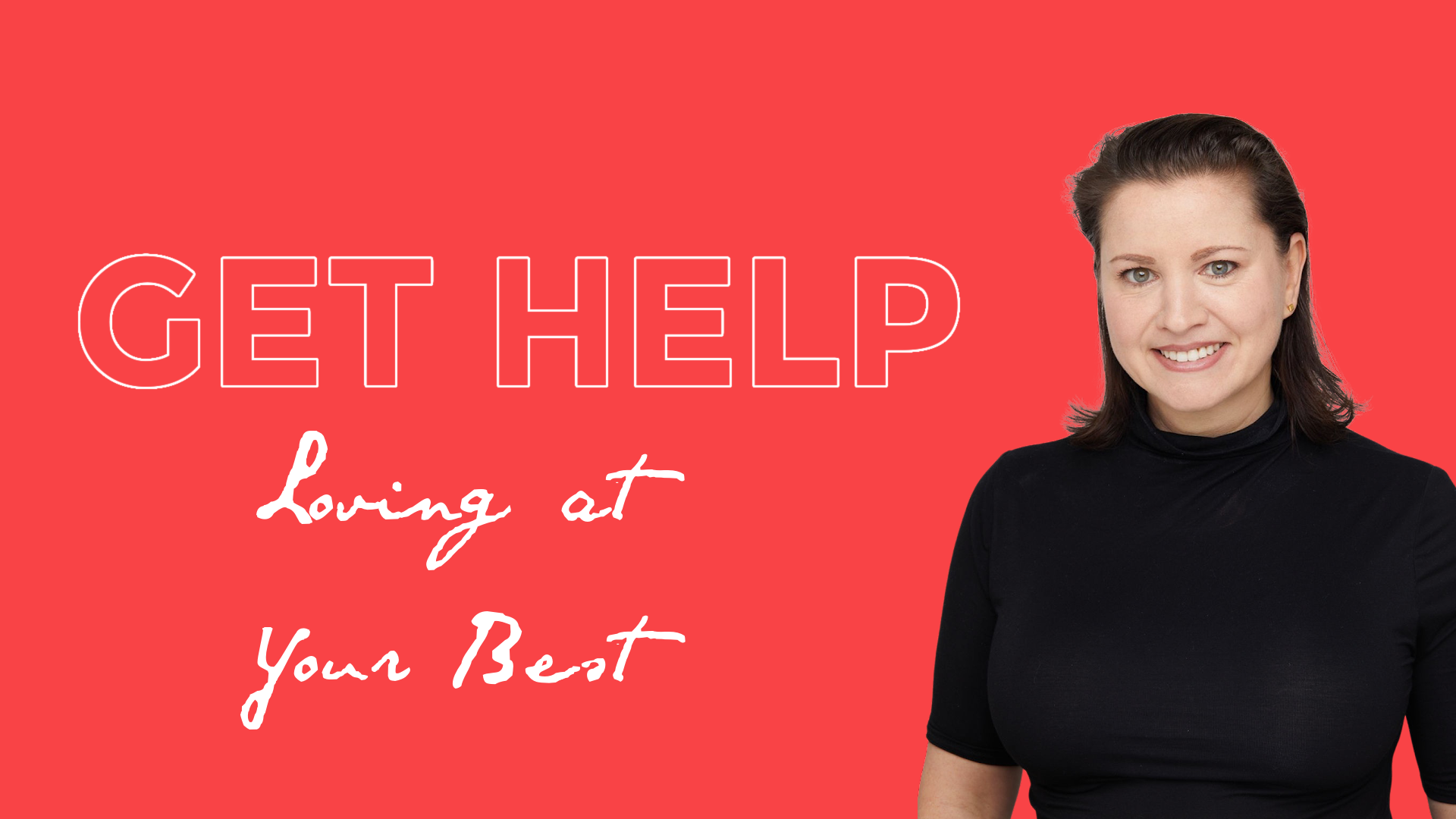
B. Holistic Perspective
In couples therapy, an integrated approach offers a holistic perspective that considers the intricate interplay of both individuals’ minds, emotions, and behavior in the relationship. This approach provides more comprehensive and effective therapy by recognizing the interconnected nature of these aspects.
1. Considering the Mind, Emotions, and Behavior
Think of your relationship as a complex ecosystem where each partner’s mind, emotions, and behavior influence the overall dynamic. An integrated approach considers individuals’ cognitive, emotional, and behavioral aspects, recognizing that changes in one area can ripple effects throughout the system.
Therapists can help couples identify and challenge unhelpful or distorted thinking patterns by examining cognitive processes, such as thoughts and beliefs. Exploring emotions allows couples to uncover the deeper feelings and vulnerabilities that shape their interactions. Addressing behaviors involves developing new skills and strategies to modify patterns contributing to relationship distress. It’s like tending to each essential ecosystem element, ensuring harmony and balance within the relationship.

2. A More Comprehensive and Effective Therapy
Therapy becomes more comprehensive and practical when all aspects of the relationship satisfaction of the individual and the relationship are considered. By integrating multiple therapeutic modalities, therapists can create a synergy of theoretical approaches that target various layers of the relationship, leading to a more profound and transformative experience.
An integrated approach offers a comprehensive toolbox of techniques and strategies to address different aspects of the relationship. It’s like a painter utilizing various colors, brushes, and techniques to create a masterpiece that captures the subject’s essence. By drawing from various therapeutic approaches, therapists can tailor the treatment to meet the specific needs of each couple, fostering growth and positive change.
Furthermore, the holistic perspective of an integrated approach recognizes that each individual brings unique experiences, beliefs, and emotions to the relationship. Therapy can provide deeper insight and healing by understanding and addressing these individual factors. It’s like peeling back the layers of an onion, gradually uncovering the core of each person’s experience and facilitating a more profound transformation.
By embracing a holistic perspective, an integrated approach in couples therapy goes beyond surface-level solutions and dives into the depths of the relationship. It acknowledges that true transformation occurs when the mind, nervous system, internal emotions, and behaviors are harmonized. It provides couples with a comprehensive and transformative therapeutic experience.

C. Flexibility and Adaptability
One of the significant advantages of an integrated approach in couples therapy is its flexibility and adaptability. Therapists trained in multiple therapeutic techniques can draw from diverse strategies as needed. This adaptability allows them to tailor the treatment strategies to each couple’s unique needs and dynamics.
1. Drawing from Different Techniques as Needed
Imagine a chef with a versatile pantry of ingredients, ready to create a delicious dish that satisfies different tastes and preferences. Similarly, therapists skilled in an integrated approach have a toolkit filled with various therapeutic techniques. This flexibility enables them to select and utilize the most appropriate strategies for each couple’s challenges.
For example, imagine a couple named Alex and Taylor. They struggle with frequent arguments and difficulty expressing their needs. Their family therapist here, trained in an integrated approach, may draw from Emotionally Focused Therapy to help them deepen their emotional connection and develop practical communication skills. Simultaneously, the family therapist may incorporate Cognitive Behavioral Therapy techniques to challenge negative thought patterns contributing to their conflicts. It’s like a therapist weaving together a tapestry of interventions that address each couple’s unique dynamics and needs.
2. Adapting Treatment Strategies for Different Couples
Every couple therapy together is a unique entity with its strengths, challenges, and dynamics. An integrated approach recognizes the importance of adapting treatment strategies to cater to the specific needs of each couple. Just as skilled musician adjusts their performance based on the audience’s response, therapists who practice an integrated approach tailor their interventions to the couples they work with.
Imagine another couple, Jordan and Riley, who struggle with trust issues from past relationship betrayals. Their therapist, well-versed in Schema Therapy for Couples, may focus on helping them identify and heal deep-rooted emotional pain and wounds. By integrating techniques from Emotionally Focused Therapy, the therapist can also guide Jordan and Riley in developing a secure attachment and rebuilding trust within their relationship while healing their schemas. It’s like a therapist creating a symphony of therapeutic interventions that resonate with each couple’s unique circumstances and needs.
By adapting treatment strategies, therapists can meet the couples where they are and guide them toward growth and healing. This flexibility allows for a truly individualized approach, ensuring the therapeutic journey is tailored to the couple’s specific challenges and goals.

Next Steps: Start Couples Therapy in New York
Finding a well-qualified couples therapist is crucial to pursue healthier and happier relationships. I’ve explored the transformative power of an integrated approach in couples therapy, where therapists draw from various modalities such as Emotionally Focused Therapy, Gottman Method Couples Therapy, Cognitive Behavioral Therapy, and Schema Therapy. This comprehensive approach offers a transformative path toward greater understanding, healing, and growth.
I’ve emphasized the significance of expertise, research, and referrals in finding a couples therapist who truly understands the intricacies of your relationship. I’ve delved into the importance of the initial consultation, where you can assess the therapist’s style and ensure that you feel comfortable and understood. Realizing the transformative impact of Emotionally Focused Therapy, Gottman Method Couples Therapy, Cognitive Behavioral Therapy, and Schema Therapy on marriages and love relationships are powerful as they uncover the depths of emotions, reshape negative patterns, and address core beliefs.
An integrated approach in marriage therapy provides tailored treatment plans, encompassing both individuals’ minds, emotions, and behavior in the relationship. It offers a holistic perspective that leads to more comprehensive and effective therapy. Therapists who practice this approach possess the flexibility and adaptability to select the most appropriate techniques for their unique circumstances. They create a safer and more supportive environment with growth and healing space.
I encourage you to take the next step towards healthier and happier relationships. Take a moment to reflect on the challenges you and your partner may face. Imagine the transformative potential that lies within couples therapy in New York. It takes courage to seek support, but the rewards can be profound.
At Loving at Your Best Marriage and Couples Counseling, our team of qualified therapists is committed to guiding you on this transformative journey. We are passionate about helping couples like you navigate their relationships’ complexities and current challenges, discover new ways of connecting, and build a foundation of love and understanding.
Just like you wouldn’t settle for any ordinary home, job, or partner, don’t settle for anything less than the best in your relationship. You deserve a therapist who can navigate the intricacies of your unique bond, providing you with the tools, insights, and support you need to thrive.
Take that courageous step into marriage and contact us at Loving at Your Best Marriage and Couples Counseling. Let’s embark on marriage as a journey of growth, connection, and lasting love. Your relationship and marriage deserve nothing less.

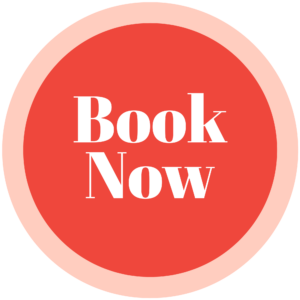
Author
-
Tiffany is a Licensed Masters Social Worker, graduating from Columbia University. Having worked with adolescents, adults, couples and families, she approaches both individuals and couples from a strengths-based perspective, helping them identify thoughts, emotions and behaviors based on schemas that are productive along with those that may be harmful or holding them back. She works to help clients develop new perspectives and behavior changes during sessions, along with tailored experiences outside of sessions to help clients progress toward their goals.
View all posts


